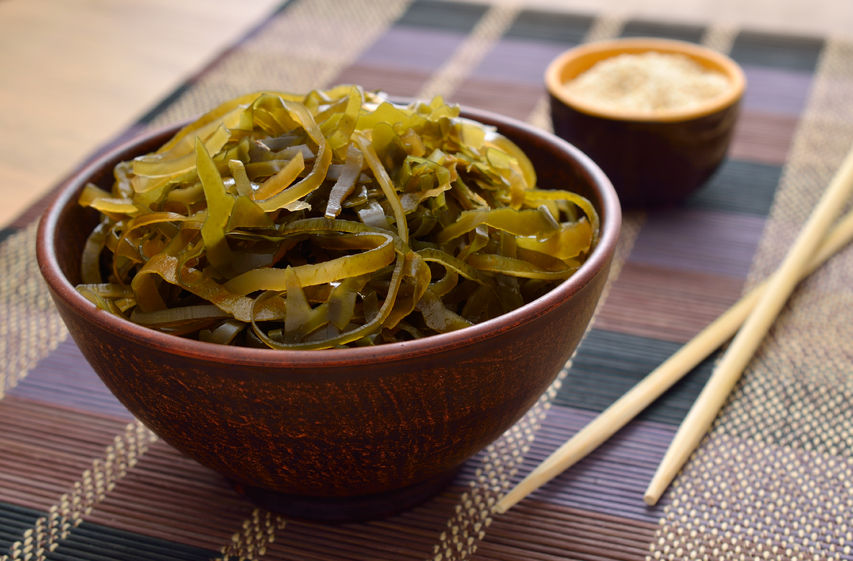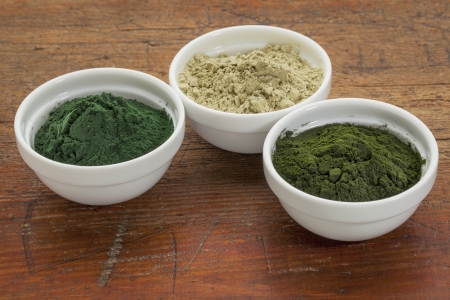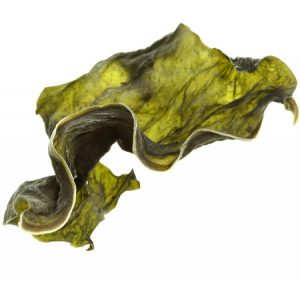
Last Updated on
The thyroid gland, located at the front of the neck, creates hormones which are directed through the body to varying areas. The thyroid, which is connected to the spinal cord, is very important because it communicates to the body how food should be used and where it should be regulated for energy. The hormones from the thyroid play a big part in metabolism through the body, which affects emotions, energy, and brain functioning.
Normally, the thyroid extracts hormones like T3 and T4. For these hormones to work normally, there needs to be enough iodine for regulation in the body. If there is not enough iodine in the body, the hormone glands will become underachieve and develop issues like hypothyroidism or Hashimoto’s disease. Some of the symptoms may include a raspy voice, fatigue, retention of water, difficulty swallowing, and even memory loss. When the thyroid is not functioning properly, the body can really struggle to function appropriately. Sometimes, thyroiditis occurs, which is when the gland becomes inflamed and does not work properly. Other symptoms from a hypothyroid disorder like thyroiditis includes a rise in weight, on-going constipation, depression, pain from the swollen gland, and sensitiveness to brisk air. Now just because a few of these symptoms are present in a person, does not mean that an individual has a thyroid disorder, but it could help indicate issues within the human body.
Statistics show that millions of people in the United States have a thyroid disorder, and of those diagnosed, fifty-percent of people have depression which is causes from their thyroid malfunctioning. Other statistics from The Consumer Report website estimates that ten-percent of women over the age of 60 have a thyroid disorder that could develop into an autoimmune disease over time. Historically, women have thyroid issues more often than men do throughout the world on a year-to-year basis.
If a thyroid disorder does occur within the human body, not all mainstream treatments work the same on every human body. If this is the case, people start to wonder what else could be used to help combat a thyroid disorder. Kelp may be a solution as an alternate treatment for individuals in need of help.
Kelp’s Benefits through Iodine
Kelp is one food that has a plethora of iodine in it. Kelp, or bladderwack, is a brown type of seaweed which people have used when traditional medications have not worked in fighting thyroid issues. Kelp can come in many forms. First, kelp can be eaten raw in its seaweed form. People may also try kelp in teas, supplements, or extracts. Originally, kelp became really popular at the end of World War II, when the United States of America dropped nuclear bombs on Japan. Kelp pills were sold in bulk to the western United States for fear that radioactive material would affect people after a nuclear fallout with either the fear that particles coming across the Pacific Ocean would affect Americas, or Japan would drop nuclear bombs on America in retaliation. The thought was the iodine in kelp would protect against harmful radioactive materials conflicting with the body.
 Today, kelp is most commonly still used in pill form. To treat thyroid disorders, it is recommended that kelp pills are taken at 600 mg per day with food and liquids. Also, kelp is thought to help with losing weight, when a malfunctioning thyroid causes the body to gain extra weight. In a way, kelp supplements counteract this process. There still needs to be a lot of research to connect these two together, but early signs are pointing to weight loss as a value of kelp.
Today, kelp is most commonly still used in pill form. To treat thyroid disorders, it is recommended that kelp pills are taken at 600 mg per day with food and liquids. Also, kelp is thought to help with losing weight, when a malfunctioning thyroid causes the body to gain extra weight. In a way, kelp supplements counteract this process. There still needs to be a lot of research to connect these two together, but early signs are pointing to weight loss as a value of kelp.
Secondly, kelp has natural iodine in its make-up, allowing the thyroid to absorb its nutrients and prevent harmful radioactive iodine into the body. Other functions of kelp include a richness in amino acids, minerals, and vitamins that help aid the body. In the current generation, kelp is kept in medicine cabinets for much different reasons than in the past. For example, the iodine found in kelp helps regulate female hormones, the immune system, and the thyroid. To strengthen the thyroid, kelp regulates hormones to help keep it functioning properly. A lot of times, the thyroid is dealing with an iodine deficiency. Many doctor’s believe the iodine within kelp can help treat a malfunctioning thyroid. The more iodine in the human body, the more active the thyroid gland is in producing hormones, and the more hormones produced in the body, the more the body works as it is intended to do. A lack of production from hormones may be the start of thyroid issues. Without iodine in the body, this may cause the thyroid gland to enlarge and slow a person’s metabolism. However, too much iodine can cause autoimmune thyroiditis, where the iodine will only lead to more issues for the thyroid.
Also, if a thyroid disorder is present in the body, kelp is used as an anti-inflammatory to help an inflamed thyroid reduce to its normal size. Kelp does this through a complex carbohydrate called fucoidan. Fucodian’s natural process is a strong anti-inflammatory that is used in a lot of medications from broken bones to sore muscles. An study by the Newcaslte University in 2014 explained that kelp actually “empowers the thyroid gland and encourages weight loss.” The release continued by saying that eating kelp before a thyroid has issues, may keep the gland healthier in the body over time.
Iodine Experimentation
 Iodine deficiencies are on the rise more and more in today’s world. In turn, because of these deficiencies, disorders of the thyroid have become more prevalent. Statistics show that 12 percent of people living in the United States have an iodine deficiency, which is 9 percent more than it was almost fifty years ago. One of the culprits involved with iron deficiencies is processed foods. Processed foods lack the vitamins and minerals that are vital for body growth, development, and maintenance. Unfortunately, processed foods continue to cost less and less, and whole, non-processed foods are more expensive, causing many people to choose the less expensive and less nutritional foods.
Iodine deficiencies are on the rise more and more in today’s world. In turn, because of these deficiencies, disorders of the thyroid have become more prevalent. Statistics show that 12 percent of people living in the United States have an iodine deficiency, which is 9 percent more than it was almost fifty years ago. One of the culprits involved with iron deficiencies is processed foods. Processed foods lack the vitamins and minerals that are vital for body growth, development, and maintenance. Unfortunately, processed foods continue to cost less and less, and whole, non-processed foods are more expensive, causing many people to choose the less expensive and less nutritional foods.
Recent studies have been done to understand the effects of a variety of kelp dosages in the body to help thyroid malfunctions. One study, that started in September of 2003 and ended in October of the same year, had thirty-six patients with thyroid disorders take different dosages of iodine. Some were given a placebo of kelp, while others were given small and large dosages. Over 4 weeks, experiments were conducted on these patients to gather evidence. After the 4 weeks had passed, the patients with no dosage at all or a small dosage of kelp showed no real benefits from the supplement. However, the patients who were given large doses of kelp proved that the thyroid responded with an increased level of hormones.
The study proved in the short term that large kelp doses were very helpful in fixing a troubled thyroid. Still, there is more research needed to prove that kelp can help in the long-term for most patients. Nonetheless, iodine, taken in the form of kelp, has proven its worth to doctors and researchers over the last decade and a half. As thyroid treatments continue to come onto the market, kelp is still a viable option that is very safe and quite cost effective. It will be interesting to see in the next decade what scientists will find when it comes to kelp and its effectiveness on the thyroid gland.
Conclusion
With the importance that the thyroid has on the body, everyone needs to make sure it is running effectively and efficiently, especially with women over the age of 60 years of age. For a lot of people, a thyroid disorder is the direct result of an iodine deficiency which have grown to 12-percent in the United States alone. Check with local medical staff to be diagnosed appropriately. A substance like kelp, which is full of iodine and other amino acids, may be helpful in fixing a malfunctioning thyroid in the short term. However, there is still a lot of research that needs to be done to prove the connection kelp has with the thyroid, but early results prove that kelp might be the answer in helping rid the human body of a variety of thyroid disorders.

For several years I have seen an m.d. how has trained in and primarily treats homeopathically. I love this guy and have done well with him with the exception of my thyroid. Was hypothyroid for 30yrs prior to becoming his patient. As I got healthier my thyroid became hyperthyroid. Currently every time I’m tested I have bounced between hypo and hyper. Since I am currently out of meds (prescription refills ran out) and I don’t see him for another month I am gonna try the kelp as it worked for my daughter in law and I’ll go back on the ashwagamda and see what happens with my next set of blood draws will update You all later.
I am on Nature Thyroid and it really made a difference for me. No thyroid either. It is a natural replacement. Also the herb Ashwaganda has properties that help regulate the T3 and T4 which control the TSH levels. Try these, you will be very happy you did.
I have no thyroid. I will stop as of today [9-2-17] taking my levothyroxin 125 mcg . I feel very bad taking the levothyroxin. I will take 600 mg of kelp and thyroid supplementation. I know a person with a non-functioning thyroid and only takes kelp. She is doing quite well.